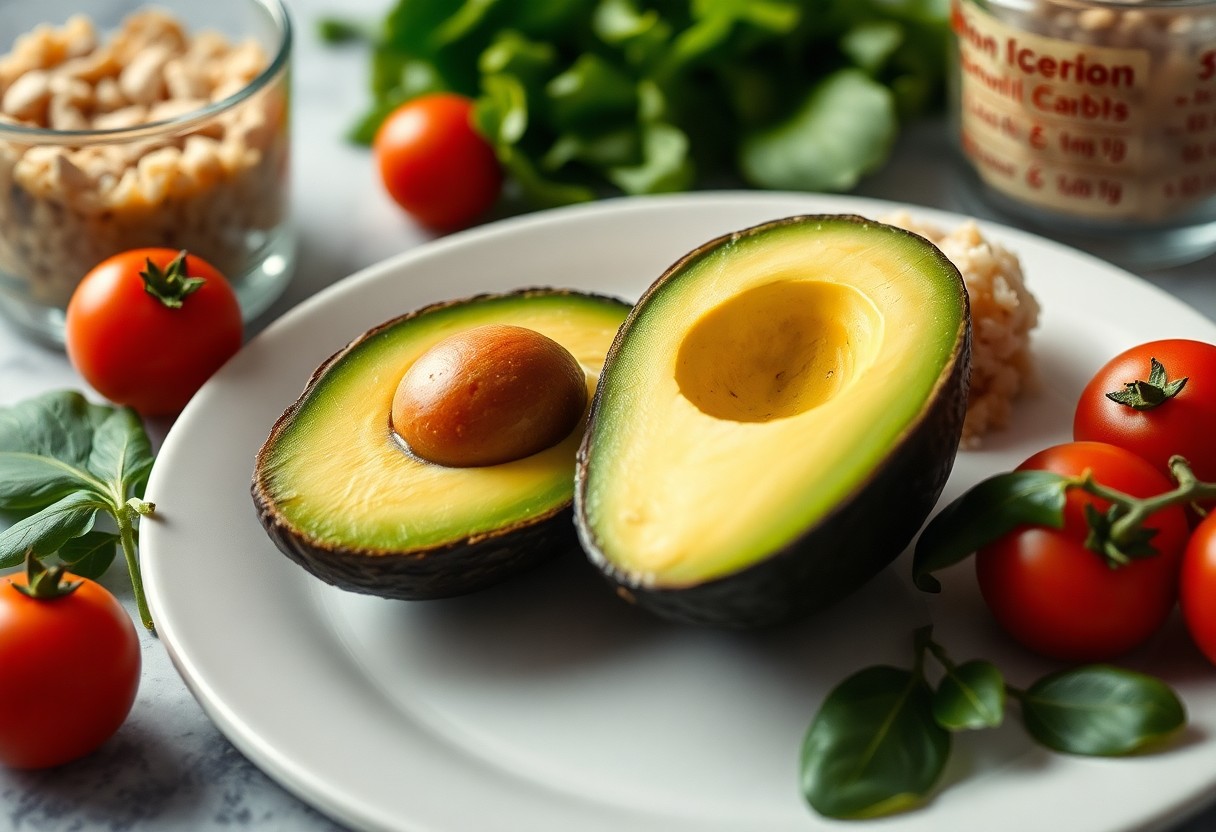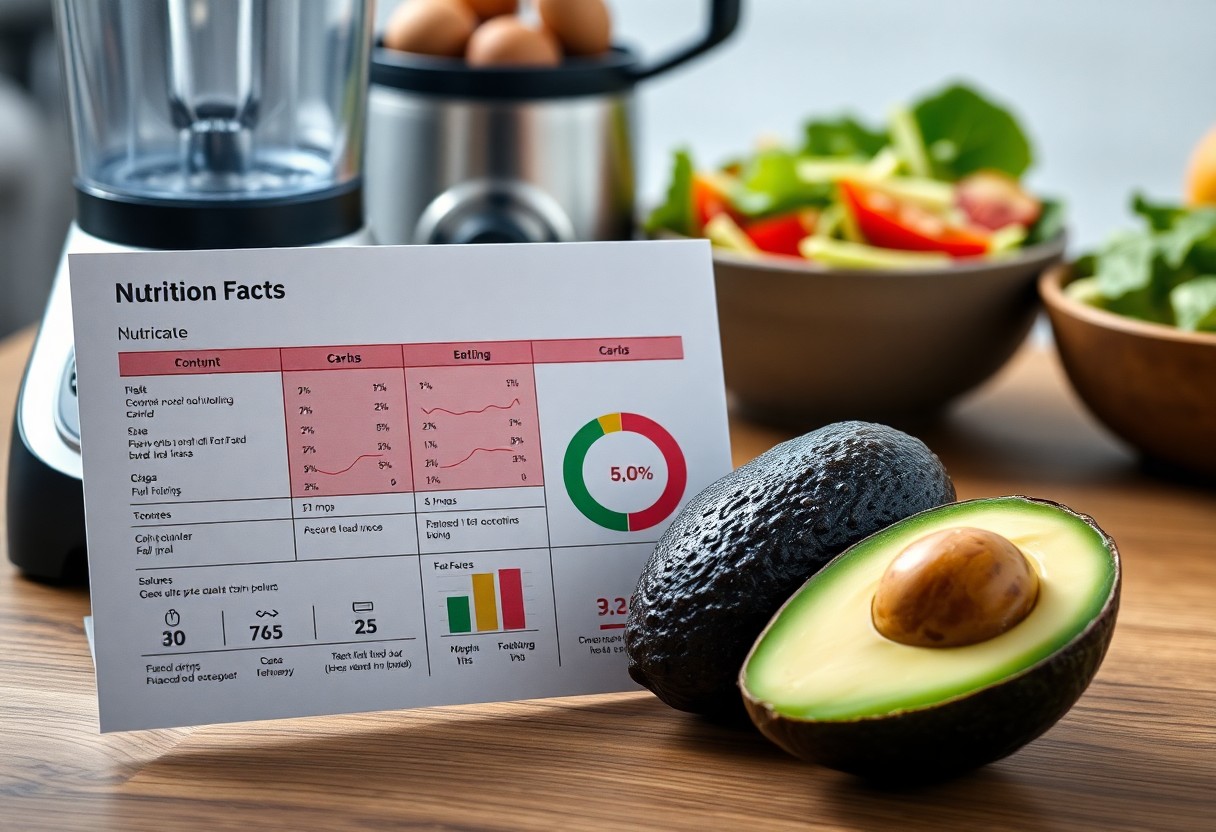Over the years, avocados have gained popularity as a superfood, but you might be wondering about the carbohydrate content and its implications for your diet. This blog post dives into the nutritional facts surrounding carbohydrates in avocados, along with the health benefits you can expect when incorporating them into your meals. Whether you’re watching your carb intake or simply looking to improve your overall wellness, understanding how avocados fit into your nutrition plan will empower you to make informed choices.

Nutritional Profile of Avocado
To understand the nutritional value of avocados, it's necessary to look at their overall profile. Avocados are rich in healthy fats, vitamins, and minerals, making them a popular choice for nutritious diets. They contain a variety of nutrients, including potassium, vitamin K, vitamin E, and important B vitamins. This unique combination of nutrients contributes to their numerous health benefits, allowing you to enjoy the creamy texture while supporting your wellness goals.
Carbohydrate Content
Profile of avocado's carbohydrate content shows that they are relatively low in carbs. A typical avocado has about 12-15 grams of carbohydrates per fruit, making them a suitable option for those monitoring their carb intake. The majority of these carbohydrates come from fiber, which provides important health benefits while promoting satiety.
Fiber and Sugars
Profile of fiber and sugars in avocados unveils their beneficial qualities. With around 9-10 grams of fiber per avocado, they stand out as a fantastic source of dietary fiber. This fiber content aids in digestion, helps regulate blood sugar levels, and contributes to overall heart health. Most importantly, avocados contain only a small amount of natural sugars, making them a healthy choice for those aiming to reduce sugar consumption.
But the true advantages of the fiber in avocados extend beyond simple digestion. This high fiber content not only keeps you feeling full longer but also supports a healthy gut microbiome and may assist in weight management. Additionally, the low sugar content means you can indulge in the rich creaminess of avocados without worrying about blood sugar spikes, making them an excellent addition to a balanced diet.
Health Benefits of Avocado
If you're looking for a nutrient-dense food that can enhance your overall health, avocados should be on your plate. Packed with healthy fats, fiber, and vital vitamins, these creamy fruits offer various benefits that can improve your well-being. Incorporating avocados into your diet can support heart health, aid in weight management, and even boost your nutrient absorption. Discover how avocados can be a game-changer for your health journey.
Heart Health
Below are the reasons avocados are fantastic for your heart. They contain monounsaturated fats that help lower bad cholesterol levels, reducing the risk of heart disease. Additionally, avocados are rich in potassium, which helps regulate blood pressure. Incorporating this fruit into your diet can enhance cardiovascular health and support a robust heart.
Weight Management
With their high fiber and healthy fat content, avocados can play a pivotal role in your weight management strategy. Being satiating, they help curb cravings and reduce the likelihood of overeating, making it easier for you to maintain a balanced diet.
Weight loss becomes more attainable when you include avocados in your meals. Their fiber promotes a feeling of fullness, helping you eat less overall. Additionally, the healthy fats found in avocados can improve nutrient absorption from other foods, ensuring you’re getting the most benefit from your diet. Swapping out less nutritious fats for avocado can help you stay on track with your weight management goals while enjoying delicious and satisfying meals.
Avocado vs. Other Fruits
Any comparison of avocados with other fruits reveals a distinct profile, particularly in carbohydrate content and overall nutritional benefits. While many fruits are high in sugars and carbohydrates, avocados stand out as a low-carb option. This makes them an excellent choice for those monitoring their carbohydrate intake while still wanting to enjoy a delicious fruit.
Comparison of Carb Content
Against other popular fruits, avocados showcase their unique standing with lower carbohydrate levels. Here’s a simple breakdown of the carb content per 100 grams:
Carbohydrate Content Comparison| Fruit | Carbohydrates (g) |
|---|---|
| Avocado | 9 |
| Banana | 23 |
| Apple | 14 |
| Grapes | 17 |
Glycemic Index
Around the topic of glycemic index, avocados rank low compared to many other fruits. This means they do not cause significant spikes in your blood sugar levels, making them a great addition to your diet, especially if you are concerned about glycemic response.
Plus, a low glycemic index indicates that avocados can help promote steady energy levels and support overall metabolic health. By incorporating avocados into your meals, you can benefit from their rich nutrient profile while maintaining balanced blood sugar, which is imperative for your overall well-being. Their healthy fats and fiber contribute to a satisfying, nutrient-dense option that harmonizes beautifully with various dietary needs.
Incorporating Avocado into Your Diet
For a nutritious boost, consider incorporating avocados into your daily meals. Their creamy texture and rich flavor make them a versatile ingredient, perfect for breakfast, lunch, or dinner. Try adding them to smoothies, salads, or even whole grain toast to enrich your meals with healthy fats and necessary nutrients. With so many ways to enjoy avocados, they can easily find a place in your balanced diet.
Recipe Ideas
Recipe enthusiasts can get creative with avocados by trying a variety of dishes. From classic guacamole to avocado-based salad dressings and even avocado brownies, the options are endless. Explore simple recipes that highlight the natural flavors of avocado while benefiting from its nutritional value, combining it with other wholesome ingredients for delightful meals.
Serving Suggestions
To enhance your avocado experience, consider a range of serving suggestions that can elevate your meals. You can enjoy avocados sliced on toast, blended into smoothies, or stuffed with your favorite ingredients. Pair them with whole grains, proteins, or fresh vegetables to create balanced and satisfying dishes.
Even small changes can make a difference in how you enjoy avocados. Try using them as a spread instead of butter, or incorporate them into your favorite pasta dishes for added creaminess. The nutty flavor of avocados complements a variety of foods, allowing you to explore different culinary combinations that suit your taste and dietary needs. With creativity, avocados can be a delicious staple in your kitchen!

Common Myths About Avocados
Many people hold misconceptions about avocados, often labeling them as unhealthy due to their fat content. However, avocados are largely misunderstood. They offer a range of nutritional benefits, making them a valuable addition to your diet. Understanding the truth behind these myths can help you make informed choices about incorporating avocados into your meals.
Misconceptions on Carbs
Above all, some believe that avocados are high in carbohydrates, which can deter those following low-carb diets. In reality, avocados are low in net carbs and primarily consist of healthy fats and fiber. This unique composition can benefit your energy levels without causing significant spikes in blood sugar.
Dietary Restrictions
Among the various dietary restrictions you may encounter, gluten-free, vegan, and ketogenic diets often highlight the inclusion of avocados. These nutrient-dense fruits fit well within these dietary frameworks, allowing you to enjoy their health benefits without conflicts. Moreover, avocados are excellent for those with lactose intolerance, as they offer creaminess and flavor without dairy.
Myths about avocados often extend to their compatibility with various dietary restrictions. Some might think that their high-fat content disqualifies them from being part of a healthy diet, but in fact, they are packed with necessary nutrients and can easily be included in most dietary plans. Avocados provide necessary vitamins, minerals, and healthy fats, making them suitable options even for those on strict eating regimens.
Summing up
Conclusively, understanding the carb content in avocados equips you with valuable information for making informed dietary choices. With just around 9 grams of carbohydrates per serving, avocados provide crucial nutrients while promoting satiety and supporting heart health. Their fiber content and healthy fats make them a perfect addition to your meals for balanced nutrition. By incorporating avocados into your diet, you can enjoy their numerous health benefits and contribute positively to your overall well-being.
FAQ
Q: What is the carbohydrate content in avocados?
A: Avocados are low in carbohydrates compared to many other fruits. A typical medium-sized avocado contains about 12-13 grams of carbohydrates. However, about 9-10 grams of this content is fiber, which means the net carbs are significantly lower, typically around 2-4 grams per avocado. This high fiber content contributes to its health benefits by aiding in digestion and improving satiety.
Q: Are the carbs in avocados healthy?
A: Yes, the carbohydrates found in avocados are considered healthy. Most of the carbohydrate content comes from dietary fiber, which offers numerous health benefits, including promoting digestive health and contributing to heart health. Additionally, fiber can help control blood sugar levels, making avocados a great option for those managing their carbohydrate intake.
Q: How do avocados fit into a low-carb diet?
A: Avocados are an excellent addition to a low-carb diet due to their low net carb content and high fiber content. They provide a source of healthy fats, mainly monounsaturated fats, which can promote satiety and help maintain energy levels while reducing overall carbohydrate intake. Including avocados in meals can add flavor and texture without significantly impacting daily carb limits.
Q: What are the other nutritional benefits of eating avocados?
A: Beyond their low carbohydrate content, avocados are rich in vitamins, minerals, and healthy fats. They are an excellent source of potassium, vitamin K, vitamin E, and various B vitamins. The heart-healthy fats in avocados help improve cholesterol levels and support heart health. Additionally, avocados contain antioxidants that may help reduce inflammation and protect against certain chronic diseases.
Q: How can I incorporate avocados into my diet?
A: There are many ways to enjoy avocados! You can add them to salads, spread them on toast, blend them into smoothies, or use them in dips like guacamole. They can also be sliced and used as a topping on sandwiches or served alongside eggs for breakfast. Their creamy texture and mild flavor make them versatile ingredients in both savory and sweet dishes.

0 Comments